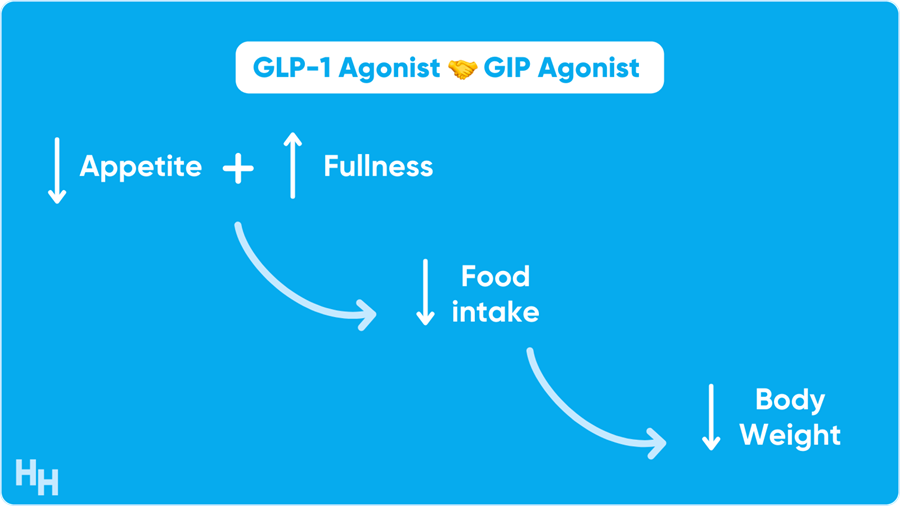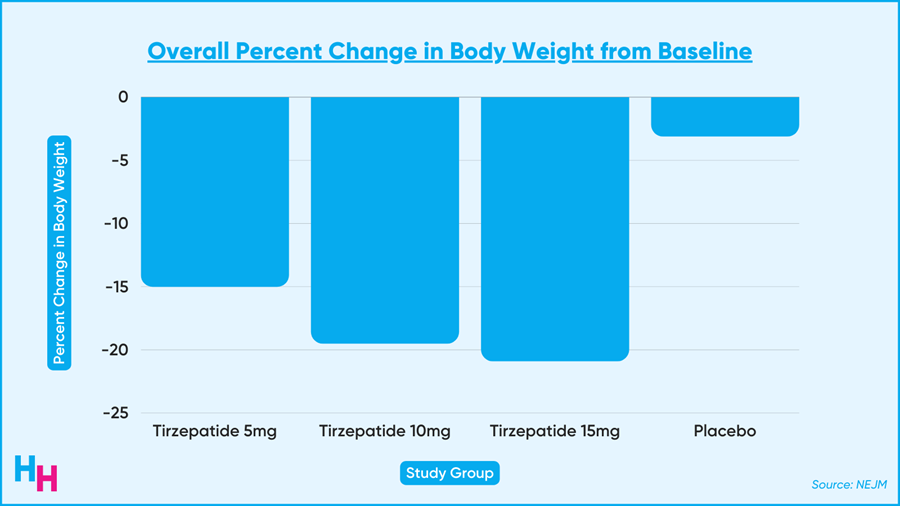05 June 2022 | Healthcare
The Future of Weight Management
By workweek
The Journal published Phase III clinical trial results of Eli Lilly’s weight-loss drug, tirzepatide. If the drug name rings a bell, it’s because I discussed the preliminary results a couple of weeks ago. At the time, I emphasized these initial results were a big deal. This time, I’m emphasizing these final results are a huge deal that has implications for solving the metabolic health crisis in the U.S. (and much of the world).
The Deets
A quick reminder:
Tirzepatide is a GLP-1 receptor agonist mixed with a GIP receptor agonist. Together, these drugs work to reduce appetite, slow down food release from the stomach, increase insulin response and inhibit glucagon.

In this Phase III, double-blind, randomized control trial, 2,500 participants with a BMI over 30, or 27 with more than one weight-related comorbidity that’s not type 2 diabetes, were randomized to either a placebo group or three groups of varying doses of tirzepatide. At the end of the 72-week study period, participants taking tirzepatide, no matter the dose, lost significantly more body weight than those in the placebo group.

Additionally, metabolic health indicators improved in the tirzepatide groups. For example, participants receiving the drug saw a 20% decrease in triglycerides, a 7.5% decrease in non-HDL lipids, and a 39% decrease in fasting insulin (which makes sense since the drug is also an anti-diabetic drug). Also, HDL levels improved by 9% in the tirzepatide groups.
For some perspective, the current FDA-approved drugs or procedures for weight loss underperform compared to tirzepatide. For example, patients taking older FDA anti-obesity drugs lose on average 3.0% to 8.5% body weight, while those undergoing bariatric surgery (invasive!) lose 25% to 30% of body weight between one and two years.
My Thoughts
Tirzepatide is a game-changer. I try not to be hyperbolic with my content, but I must be for this drug. The drug’s effectiveness beats any current FDA-approved drug (minus semaglutide, which functions similarly to tirzepatide) or procedure. Gastric bypass surgery will be considered an ancient procedure within 10 years. That’s my bet.

I envision drugs like tirzepatide will be as common as high blood pressure medication, given how effective the drug is in reducing weight and improving metabolic health altogether. You’re essentially killing three diseases with one drug: diabetes, obesity and dyslipidemia (RCT is needed). But, it would help if you also thought about the diseases the drug prevents. Its anti-diabetic and anti-obesity properties can stave off renal disease, peripheral neuropathy, osteoarthritis and cardiovascular disease. These are costly diseases to treat!
Once FDA-approved, the main obstacle to access will be the drug’s price, which will likely be priced at around $5,500 per year. I think tirzepatide is a cost-effective medication if it can prevent the expensive diseases I discussed above. But, I’m no economist. I just hope insurance covers the drug, including Medicaid, equitably.
Lastly, my bold statement regarding the future of gastric bypass surgery elicits the response:
Well, what happens when you stop taking the med? You’ll gain the weight back. At least surgery is a permanent fix.
True, but if my medical education has taught me anything: the answer is, 99% of the time, to always start least-invasive and progress to most-invasive. Surgery is invasive and carries its own set of risks from bleeding to bowel perforation and infection. So, if tirzepatide can produce better results than bariatric surgery, and it’s only a weekly injection, then tirzepatide is the go-to. Additionally, companies are already trying to make weight loss with these GLP-1 analogue drugs more sustainable.
Therefore, I predict we’ll see more startups like digital metabolic health company Calibrate blossom. They’re an integrative platform that uses weight loss medication semaglutide—which is FDA-approved for weight loss—with 1:1 coaching on lifestyle changes and a curriculum-based education on food, sleep, exercise and behavioral health. The hope is that an integrative weight loss approach can make it more sustainable. I like this approach better than medication alone, and I hope we see more companies like Calibrate.